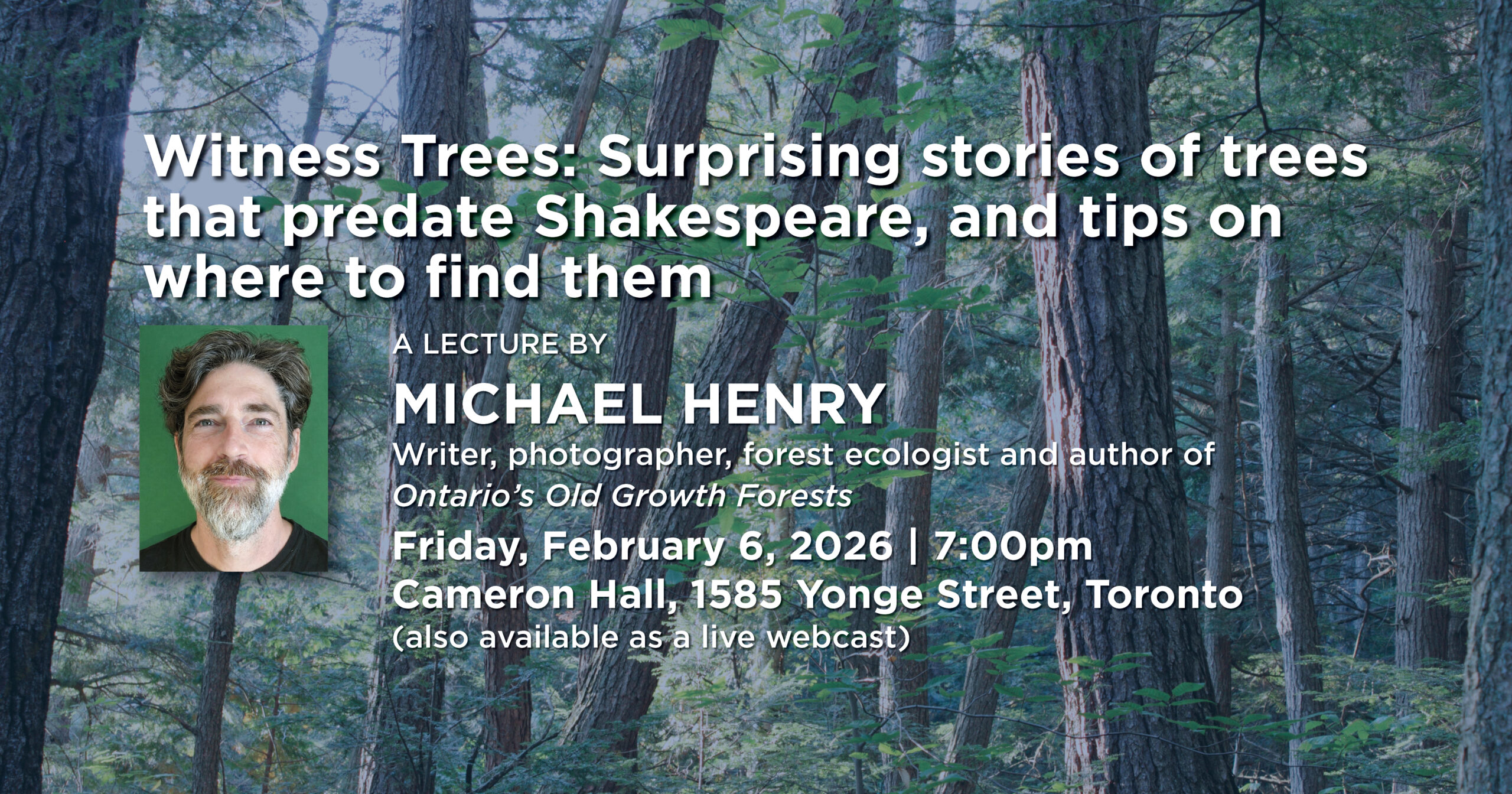Witness Trees: Surprising stories of trees that predate Shakespeare, and tips on where to find them
Cameron Hall 1585 Yonge Street, TorontoSome of Ontario’s old trees survive because of their connection to history; maybe they were present during the battle of Queenston Heights in 1812, or grew along the Toronto Carrying Place Trail. Other trees were overlooked because they grow on cliffs or in swamps. A few were preserved as intentional choices by landowners. All have stories woven around them, and written into their trunks, branches, and bark to be read by those who know how. Michael Henry will guide you to Ontario’s oldest and most remarkable trees with colourful photos and stories. You may find yourself more hopeful and inspired than you started out, which is the natural outcome of time spent with old trees – and you’ll likely never see trees quite the same way again.
BIOGRAPHY
Michael Henry is the author Old-growth forest walks: 26 hikes in Ontario’s Greenbelt, and Ontario’s old-growth forests. He maintains the list of Ontario’s oldest trees and has found a few himself. He works with volunteers and NGOs like the Wilderness Committee to protect old-growth forests, including the remaining old growth and large roadless areas in Algonquin Park. He is also involved in natural building, and his next book will bring together his broad interests in sustainability and climate solutions. He is currently living with his wife and two kids in Peterborough, Ontario, where he grows native plants in his yard and works to reduce the impact of invasive species on his local forests.




